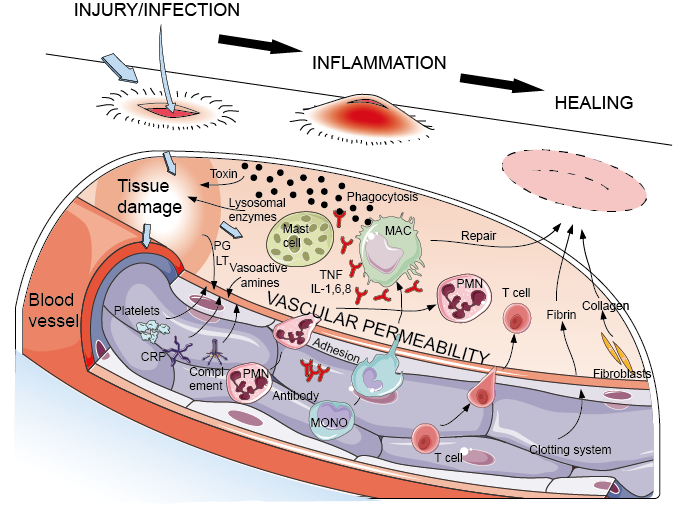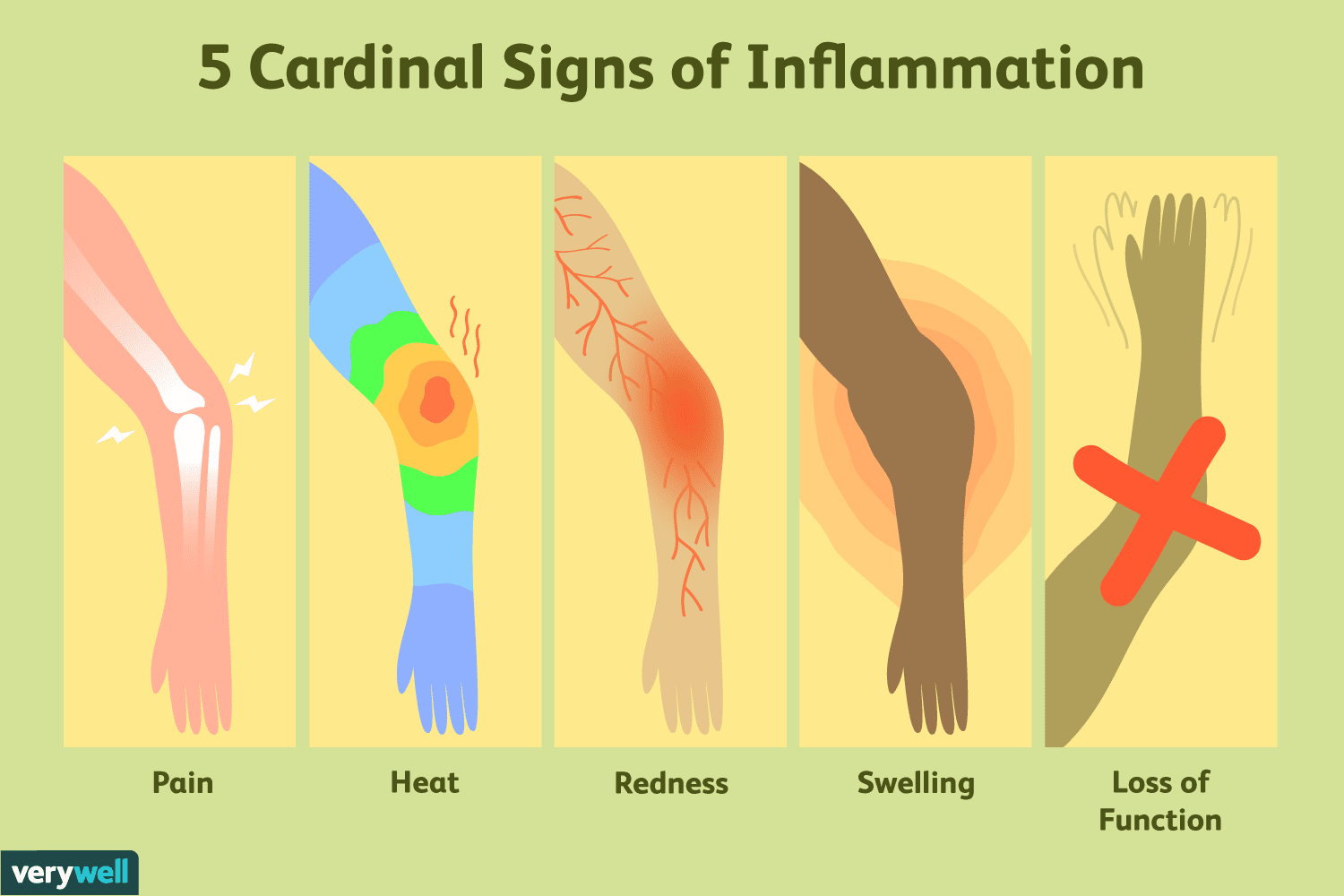Back
Inflammation
By Shannon Strauch, PTA, STMT-1 on 9/18/2024

Inflammation is the body's natural response to injury, infection, or harmful stimuli, designed to protect and heal tissues. However, when inflammation becomes chronic or widespread, it can do more harm than good. Prolonged inflammation can disrupt the body's systems, leading to a host of issues, especially within the fascial system, which plays a crucial role in supporting and protecting muscles, nerves, and organs. Understanding the effects of inflammation on the fascial system, along with methods like fascial counterstrain, offers insight into how we can address and alleviate these issues.
Why Inflammation is Bad for the Body
While acute inflammation is beneficial in healing injuries or fighting infections, chronic inflammation creates a cycle of persistent irritation and damage. It occurs when the body's immune system continues to attack tissues even after the initial threat is gone. This constant state of inflammation can lead to several serious health problems:
Tissue Damage
: Chronic inflammation erodes healthy tissues, contributing to conditions like arthritis, fibromyalgia, and even heart disease.
Autoimmune Conditions
: In some cases, chronic inflammation leads the immune system to mistake healthy cells for harmful ones, causing autoimmune diseases like lupus, multiple sclerosis, and rheumatoid arthritis.
Increased Pain Sensitivity
: Prolonged inflammation heightens nerve sensitivity, making pain more intense and prolonged.
Increased Risk of Disease
: Chronic inflammation has been linked to cancer, heart disease, and diabetes. The persistent immune response can damage cells and DNA, leading to abnormal cell growth.
Symptoms of Inflammation in the Fascial System
Fascia is the connective tissue that wraps around muscles, organs, nerves, and blood vessels. It's vital for the body's structural integrity, mobility, and fluid movement. Inflammation within the fascial system can manifest in various ways:
Stiffness and Restricted Movement
: Inflamed fascia tightens and loses elasticity, limiting the range of motion and causing stiffness.Chronic Pain
: When fascia is inflamed, it can lead to chronic pain, especially in the neck, back, and joints. This pain often feels widespread and may not respond well to traditional pain treatments.Swelling and Edema
: Inflammation in the fascia can impair lymphatic drainage, causing fluid buildup, swelling, and a feeling of heaviness in the limbs.Numbness or Tingling
: Because fascia wraps around nerves, inflamed fascia can compress nerves, causing symptoms like numbness, tingling, or even nerve pain in the arms, legs, or hands.Headaches and Migraines
: Fascial inflammation around the head, neck, and upper spine can contribute to tension headaches or migraines, as tight fascia affects surrounding blood vessels and nerves.

How Fascial Counterstrain Can Help
Fascial counterstrain is a manual therapy technique that focuses on relieving tension, restrictions, and inflammation in the fascial system. This gentle approach targets specific points in the body where fascia is tense or inflamed, providing relief through subtle, sustained pressure and positioning.
Here’s how fascial counterstrain can benefit those suffering from inflammation:
Restores Mobility
: By releasing tension and restrictions within the fascia, counterstrain therapy helps restore the natural glide and movement between tissues, improving overall flexibility and reducing stiffness.Reduces Pain
: Fascial counterstrain directly addresses the source of pain by targeting areas where inflammation has restricted fascial movement. This allows for improved blood flow and nerve function, reducing pain sensitivity.Improves Circulation and Lymphatic Flow
: Inflammation can impair circulation and lymphatic drainage, causing swelling and delayed healing. Fascial counterstrain helps release these blockages, improving fluid movement and reducing swelling.Addresses Nervous System Balance
: Fascial counterstrain impacts the autonomic nervous system, which regulates inflammation and stress responses. By gently influencing nerve pathways, this therapy can help reset the body’s inflammation levels and promote healing.Promotes Healing and Tissue Repair
: Since counterstrain therapy promotes better blood flow and reduces tension, it creates an environment for healing tissues to repair themselves, ultimately reducing the chronic inflammatory response.
Conclusion
While inflammation serves an essential role in healing and protection, chronic inflammation can have detrimental effects on the body, particularly within the fascial system. From stiffness and pain to reduced mobility and swelling, the symptoms of fascial inflammation can significantly reduce quality of life. Fascial counterstrain offers a gentle, effective method to address these issues, improving overall body function by releasing tension, reducing pain, and promoting healing. By addressing inflammation at its root, fascial counterstrain empowers the body to heal naturally and regain balance.
Read More:
How Chronic Pelvic Congestion in Men Contributes to Prostatitis By Shannon Strauch, PTA, STMT-1 on 12/11/2024 How lymphatic issues can cause symptoms of prostatitis Prostatitis and Tight Pelvic Floor Muscles: A Comprehensive Guide By Shannon Strauch, PTA, STMT-1 on 12/10/2024 How a tight pelvic floor can be the reason for prostatitis symptoms
Are you ready to live pain free?
Request An Appointment